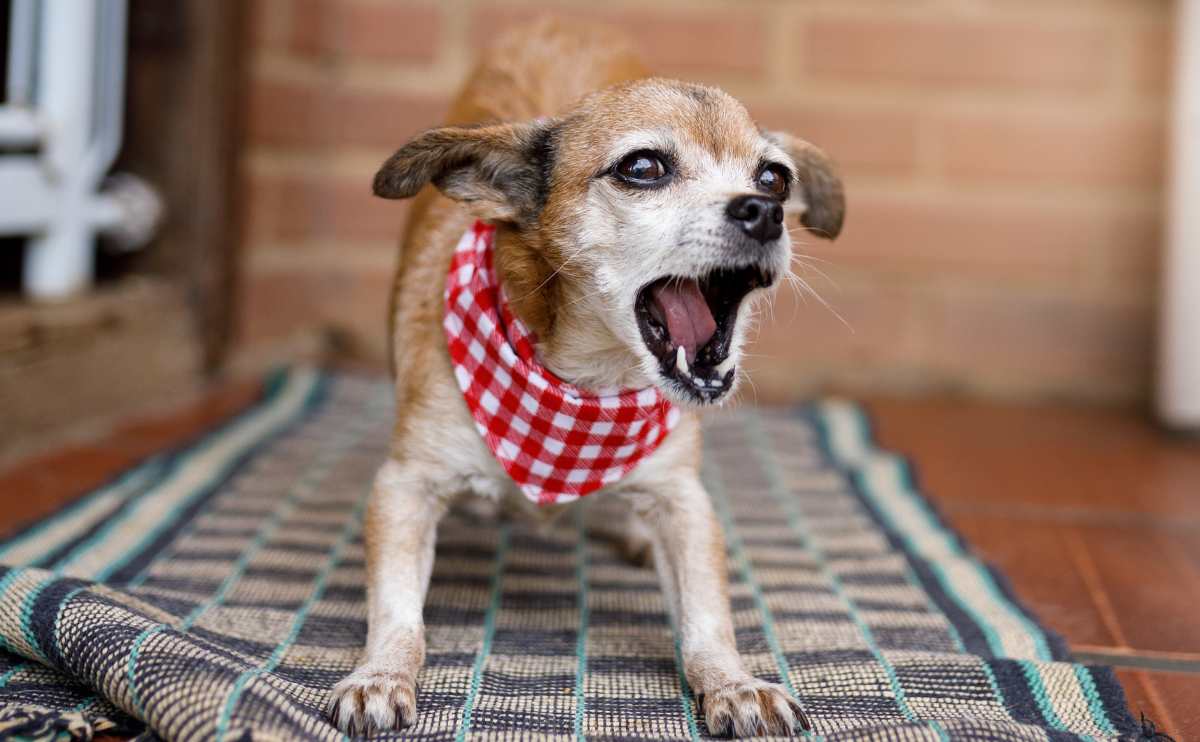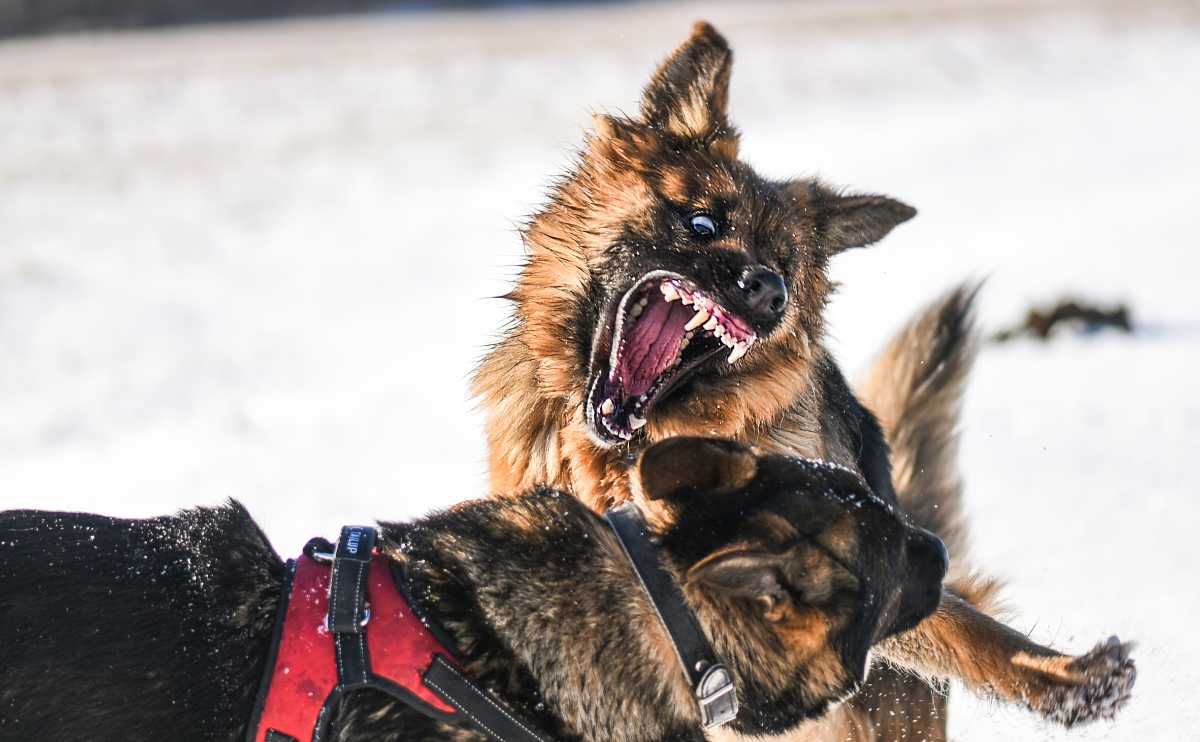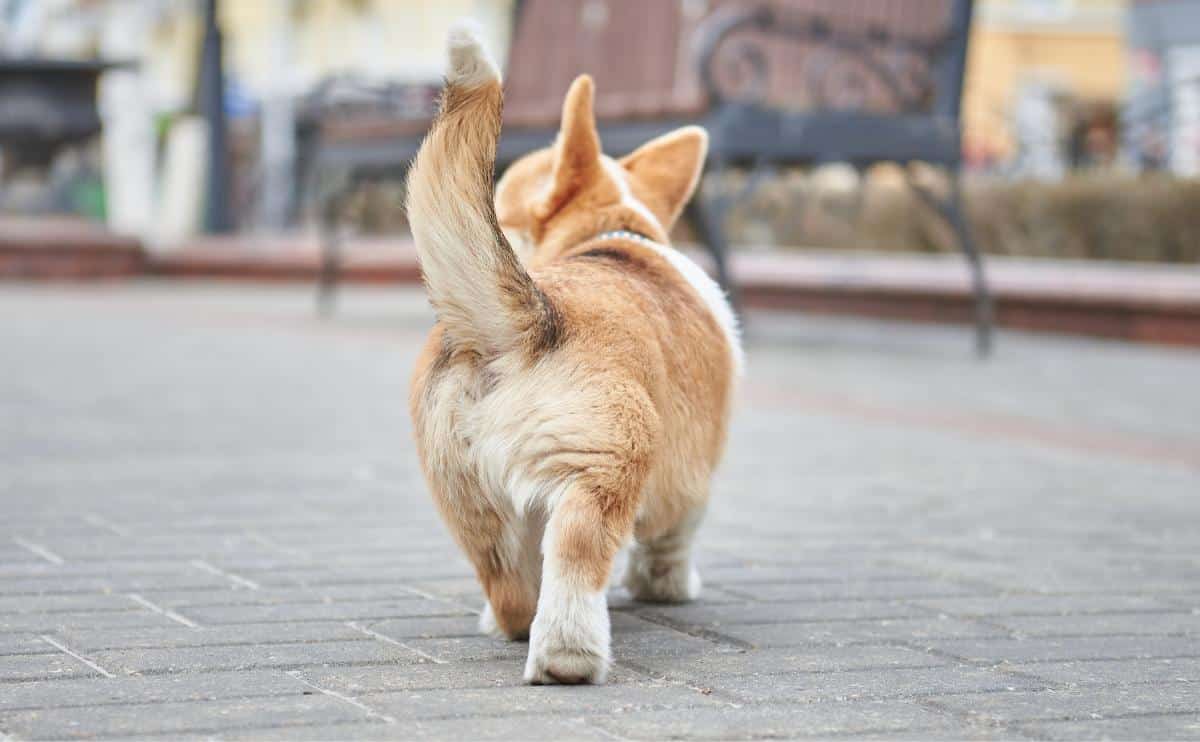When you purchase through links on our site, we may earn a commission. Here’s how it works.

You let your dog outside to do its business, and before you know it, they are cleaning up after themselves, but not in a way you’d prefer. Yep, your dog just ate their feces. Find out why your dog is eating poop, how you can stop it, and what to do when shit happens.
What Is Coprophagia?
Coprophagia is the scientific term for consuming feces or eating poop. Many animals engage in coprophagia, including dogs and mice. Regardless of how commonly we may encounter it with our domesticated dogs, there is no conditioning human beings to the horror we experience at that very moment we see our beloved dog eat poop. Dogs may eat their own poop or that of another dog or animal. They will also eat human poop. This happens a lot when our pups encounter poop outside from wild animals or other dogs in their neighborhood.
Why Do Dogs Eat Their Poop?
There are many theories as to why dogs consume their feces or the feces of other animals, and several factors to consider. Researchers claim that some of the elements that affect whether a dog eats feces include:
Dogs may also lick poop to smell and taste it, gathering information about themselves or another dog. Some believe that eating the poop after the assessment may be a way to remove the evidence that the dog himself or the other one was ever in the area.
What The Vet Says About Dogs Eating Poop
We asked Dr. Hannah Godfrey, BVetMed, MRCVS, about dogs eating poop. Here’s what she said.
“Eating poop, or to use the technical term, coprophagia is relatively common in very young dogs, and it’s something that most will grow out of as long as it isn’t encouraged. Dogs might eat feces for a variety of reasons – young puppies may just be curious, and poop from very young puppies isn’t that different from mother’s milk since their guts don’t do much processing. Equally, though, dogs can eat poop through boredom, hunger, habit, or because they’re lacking something in their diet. The term pica refers to eating non-foods and can be related to liver problems, and it’s certainly something to worry about if your dog is eating feces but also eating other non-food items. It’s been suggested that dogs may eat the feces of dogs who are higher in the pecking order than them, so those who are more ‘dominant’ characters, but let’s not forget that dogs aren’t humans, and they might just find the smelliness and general messiness appealing and fun, especially when it comes to poop from other species – many dogs seem to love rolling in cowpats and fox poop!” Dr. Hannah Godfrey
Dr. Godfrey also addresses what to do if your pup is eating poop, either theirs or another species. “If your dog eats their own poop, it’s a little easier to manage – you can keep the yard clean and pick up quickly when your dog does their business. I’ve also had clients have success with distracting their dog immediately after they poop, perhaps with a rattle or squeaky toy or using their favorite treat (but remember not to give too many!). I’ve also used pet products that make a dog’s poop taste unpleasant, and this can work well if it’s their own feces they’re eating. When dogs eat other animal’s feces, I tend to advise distraction techniques and working on recall, but if they have any other symptoms of being unwell, I’ll also do a general health check and screening blood test to make sure there isn’t an underlying health problem causing the behavior. If the pet parent and I are struggling to get the problem under control, I’ll refer them to a pet behaviorist for more specialist support.”
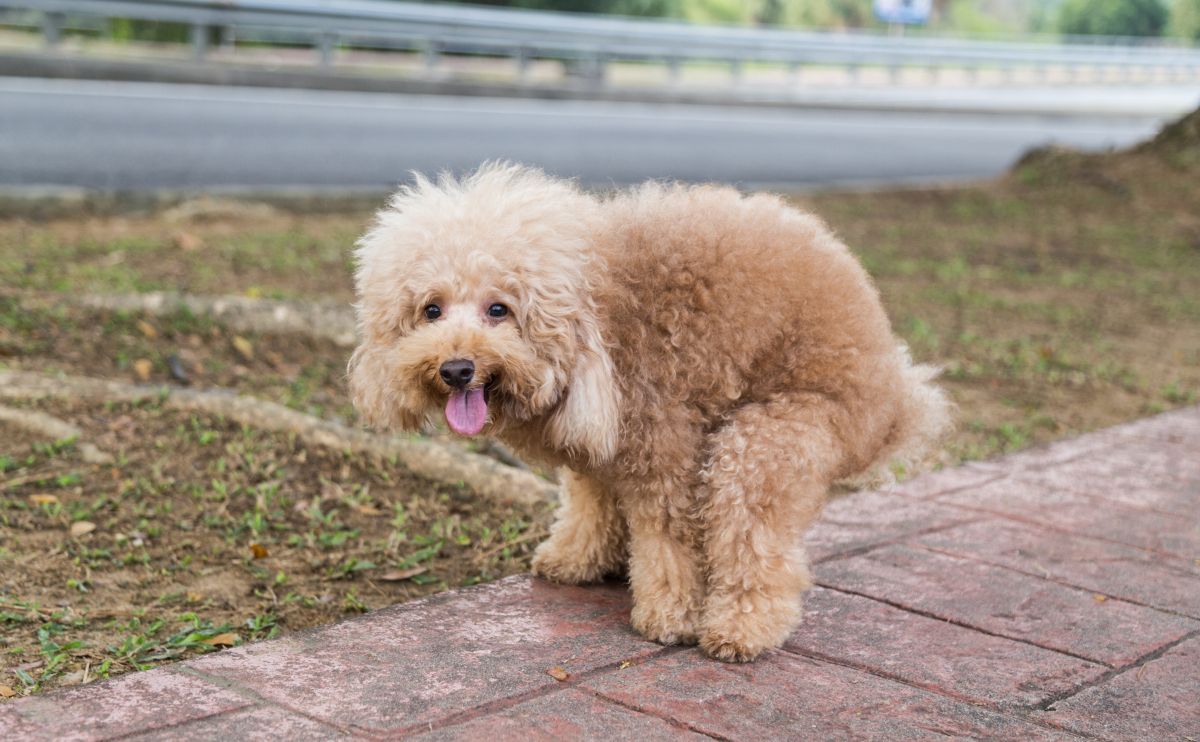
Overall Health Of A Dog
One of the most commonly cited explanations for coprophagia is the overall health of the dog engaging in this habit. There are some who believe that dogs that resort to eating poop are seeking to replenish digestive enzymes in their gut. The reason for this is that most of the commercial dog foods available today significantly differ from a dog’s natural diet. This can sometimes create an enzyme imbalance in the dog’s gut.
Another common explanation for this behavior is a deficiency in certain vitamins, most commonly vitamin B. Diabetes, anxiety, and some gastrointestinal diseases are other medical reasons a dog might eat their poop. That said, while dog owners most commonly want to pin their dog’s unusual behavior on a health condition, the fact is that this is rarely the reason for coprophagia activity.
Shame
Many argue that dogs are unable to comprehend or express human emotions. However, there is a considerable amount of evidence to the contrary.
It used to be that humans believed that the most efficient way to deter their dogs from pooping in the house would be to rub its nose in the defecation while sternly saying “no.” More recent evidence not only tells us that this is a poor housebreaking technique but additionally rubbing a dog’s nose in poop could be one reason why some dogs take part in coprophagia. Most dogs want to please their family pack, and just like human children, if they feel that they are going to be “in trouble,” they may try to hide the evidence.
Why do puppies eat their poop? Younger puppies that have been threatened with the “nose rubbing” technique after pooping in the house often eat their waste to avoid being shamed by their pack members or having their nose rubbed in it again. It is also possible that young dogs take the nose-rubbing technique as a signal that they should consume their waste since their face is being rubbed in it.
As a side note, nose rubbing is NEVER a correct solution. It creates poor bonding between you and your dog and can severely cripple your dog’s development and understanding of what you expect from them.
Instincts
There are some canine instincts that have survived the domestication of dogs, and, for some dogs, these instincts are more noticeable. Examples of these instincts include: dogs that roll in feces to cover their scent and moving in circles before laying down (also known as denning.) As dogs are bred, they can lose these instincts, but in some cases, they seem as strong as ever. This may be another reason why some dogs eat poop.
Wild dogs rely on many actions to preserve their families and remain hidden from predators. When wild dogs have young pups in the den that are still too young to leave, these pups will defecate in the den. The smell of this waste can attract predators, and so the mother frequently consumes the waste of her pups to keep them safe. For some pups, observing their mother doing this can prompt them to imitate her actions.
Dominance
Dogs live in a hierarchical society; there is always one dog that sits at the top of the hierarchy, with other dogs in the pack being submissive to this pack leader. In some cases, researchers have observed coprophagia in submissive pack members. Uniquely, the feces being eaten are only those of the dominant pack members.
While most domesticated dogs do not live in packs, they may live in households with multiple dogs. In this case, the more submissive pack members may be noted as those who commit coprophagia.
Neglect
One of the most unfortunate reasons for coprophagia in dogs is neglect. Like most animals, when left with no choice, a starving dog will resort to eating anything to keep itself alive.
Coprophagia is commonly seen in dogs abandoned by their owners. Sadly, many pups are either tied up outside or left in the home after the owners move away. Often, when dogs are rescued from these types of situations, they may continue coprophagic behavior even when placed in a safe home and fed a healthy diet.
Our Personal Experience With Our Dog Eating Poop
Unfortunately my dog is a fan of eating poop (both human and dog feces). One time he sniffed out my nephew’s poopy diaper in the trashcan and ate it. My dog’s breath smelled for days despite brushing his teeth after. He often sniffs out poop while on walks. Sadly, it can be a challenge to see what he’s trying to stick his nose in when it’s dark, only to find out when it’s too late. His sense of smell is super strong, and I don’t understand why eating poop tastes good, especially since he’s such a picky eater. We have to monitor him closely when there might be poop around so we can redirect his attention elsewhere.
– Sadie Cornelius, Cavalier King Charles Spaniel parent
How To Stop Your Dog From Eating Poop
You’ll first want to schedule an appointment with your veterinarian to ensure your dog is healthy. Ruling out any health conditions is the most important thing you’ll need to check off.
If your veterinarian discovers an underlying condition, they may suggest a treatment path (e.g., a particular diet, multivitamins, or medication to relieve anxiety). If your vet detects there are no health conditions, you’ll need to focus on deterring or distracting your dog from eating its poop.
Some products on the market are made to deter your dog from consuming their poop, but these products can be ineffective and costly. The best thing you can do is take away the temptation. That means going out with your dog when they go potty and scooping up their poop immediately after.
You may find that keeping your dog on a leash while they go potty helps keep them away from their poop too. Correct your dog if they attempt to eat their poop by saying “no” or “leave it” and directing your dog away from the feces.
Why Dogs Eat Poop Infographic
Here’s a graphic summarizing why dogs eat poop and how to get them to stop.

Illnesses Transmitted Through Coprophagia
Many devastating diseases and intestinal parasites can be transmitted through coprophagia. These include:
Illnesses and accidents are covered by pet insurance. Pet insurance can help you save money on high vet bills. You can read our pet insurance reviews to see if one provider could assist you in these unexpected situations.
Worms
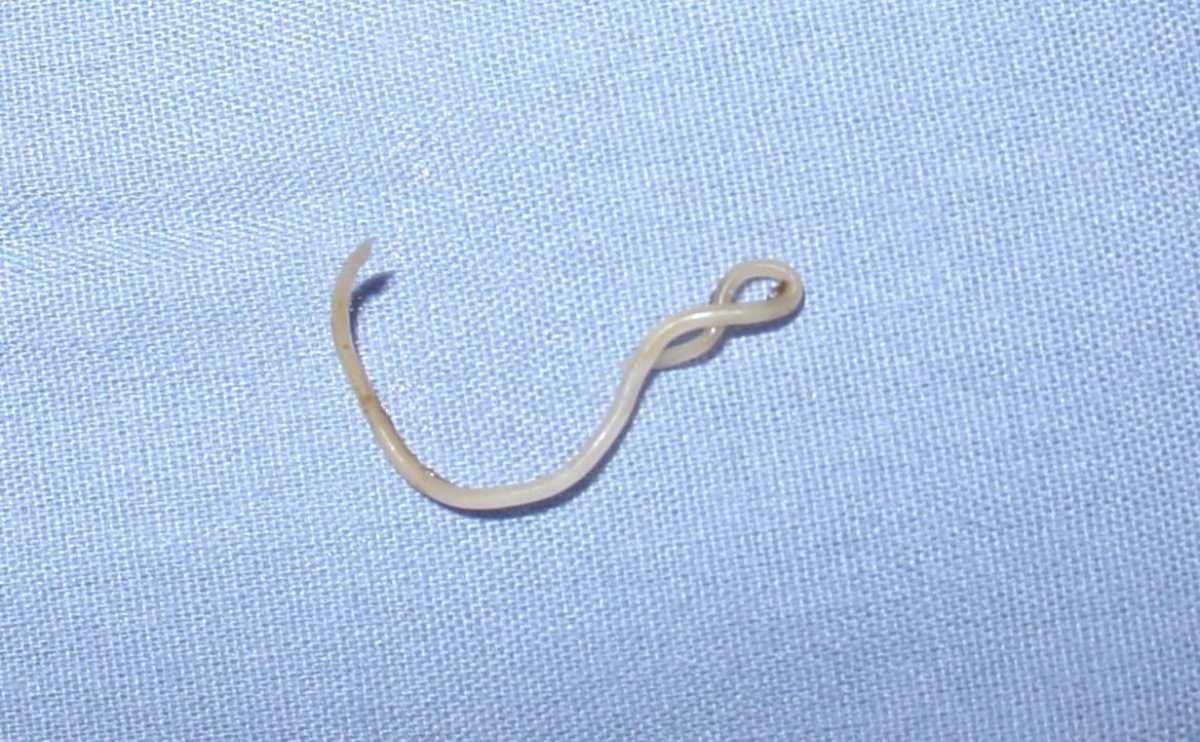
When a dog eats the feces of a dog with these types of parasites, they can consume living worms or eggs of worms still residing in their host. Once feces are consumed, dogs with coprophagia begin to show signs of contamination. Some of the most commonly found worms in dogs with coprophagia include:
Hookworms
Hookworms are parasites that live in the small intestine of the infected animal and not only affect dogs, but they can also infect people. Unfortunately, hookworms are incredibly small and yet extremely difficult to eradicate once they have infected a host animal.
Hookworms can cause difficulties for the infected animal, including anemia since these intestinal parasites feed off the animal’s blood by damaging the intestinal mucosa. While canine hookworms rarely cause illness in humans, they can occasionally, so it is essential to treat a dog with hookworms immediately with a dewormer. Learn more about hookworms.
Tapeworms
Tapeworms are found in different animals and can grow to extreme proportions, resulting in malnutrition in the host animal. More than a thousand species of tapeworms lay eggs that are shed in the feces.
When a dog consumes the feces of an infected dog, it will begin to show symptoms once the tapeworm establishes itself in the intestines of the newly infected dog. A veterinarian should treat tapeworm infestation. Learn more about tapeworms.
Roundworms
Roundworms are another particularly tricky parasite to eliminate in that they lay extreme numbers of eggs that can survive outside a host’s body in soil for as long as ten years. This means that a dog can contract roundworms from consuming infected feces and the soil contaminated by those feces. Roundworms should be treated with a dewormer prescribed by a veterinarian. Learn more about roundworms.
Parvovirus
Parvovirus is a particularly devastating disease that can be transmitted through the feces of a dog with active parvovirus OR through a dog that has successfully been treated for parvovirus. Many puppies diagnosed with this disease never survive the initial stages of infection.
Parvovirus is extremely contagious and can affect the circulatory or intestinal system of the infected dog, depending upon the subtype of the disease. Parvovirus attacks cells that divide rapidly in the body and can quickly destroy vital cells such as bone marrow and white blood cells.
Treatment for parvovirus infection includes administering fluids and antibiotics to kill the infection. While most dogs rarely survive parvovirus, those that do often have lasting damage in the way of scar tissue in the organs affected by the virus.
Heartworms are worms that infect the heart of the affected animal and damage the heart tissue, eventually leading to death. They are particularly prominent in dogs and are extremely difficult to eradicate once they have infected the heart tissue.
Heartworms are easily prevented through the administration of regular heartworm prophylactics. Once heartworms establish themselves in a dog, treatment centers on poisoning the existing worms through arsenic-based compounds. Unfortunately, many dogs, already weakened by the infection, cannot survive heartworm treatment.
Infectious Canine Hepatitis
Infectious canine hepatitis spreads through feces, saliva, urine, blood, and nasal discharge. It results in both infection of the liver and the establishment of a bleeding disorder. Dogs infected with this disease can exhibit various symptoms, including spontaneous hemorrhaging and a fever.
Treatment of infectious canine hepatitis is based upon treating the symptoms displayed by the individual dog.
Campylobacteriosis
The campylobacteria found in the gut cause campylobacteriosis. Small puppies are those that are infected most and often present with severe diarrhea. The diarrhea can rapidly cause dehydration and, eventually, death if left untreated. Campylobacteriosis generally runs its course in a week. However, when young puppies are affected, this is long enough to cause death.
Any young dog suspected of having campylobacteriosis or showing significant diarrhea should be treated immediately by a vet to prevent dehydration and an imbalance of electrolytes. Treatment for campylobacteriosis includes a course of antibiotics and administration of fluids.
Does Pineapple Help & How Much Pineapple Can I Give My Dog?
Some people give their dogs pineapple in hopes that they won’t like the taste of it in their poop. Unfortunately, this can be a hit or miss to stop coprophagia.
Pineapple naturally contains a lot of sugar. If your dog consumes too much sugar, it can lead to an upset tummy. If given in safe quantities, pineapple is generally okay for a dog to ingest, but we suggest checking with your vet before feeding your dog pineapple.
Sh*t Happens…
If you have tried all of the above and nothing seems to help, talk to your vet or seek the help of a professional dog trainer. In addition to eating it, dogs might also like to roll in poop, but you can find out why and how to stop it. Neither eating poop nor rolling in it are behaviors you can let continue, so these need prompt attention to deter them from becoming major problems. We also cover reasons why your dog may have blood in his poop and what to do.
Why Trust Canine Journal?
Kimberly has written about many dog health issues, consulting vets and pet professionals along the way. To ensure her dog (and other dogs) doesn’t eat her dog’s poop, she scoops the poop up and disposes of it properly. The last thing she wants is for any dog to get sick. Kimberly is also diligent while walking her dog, always looking out for dangers to keep her dog away from things like poop, expired animals, trash, and other harmful items along the walking trail.
Tagged With: Food Safety, Heartworms, Poop, Worms